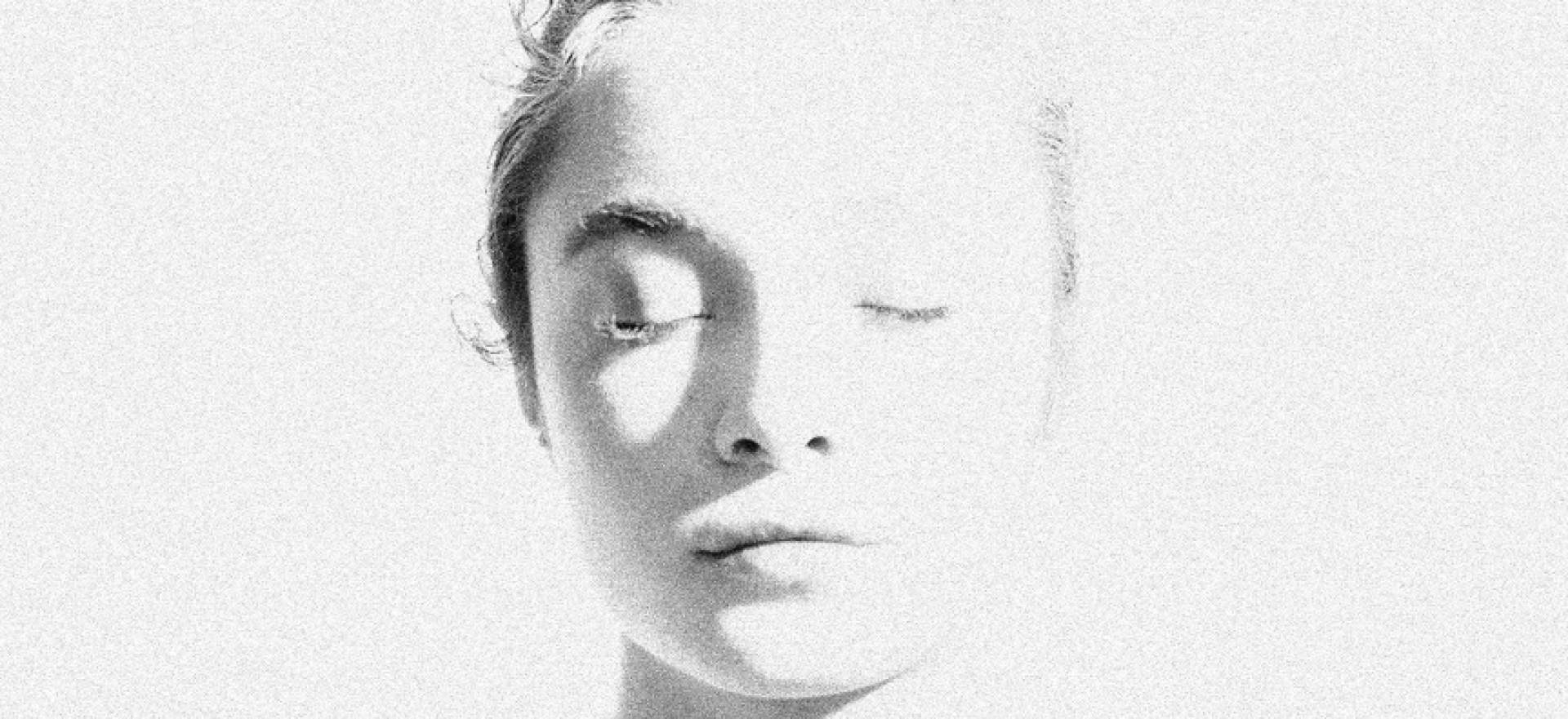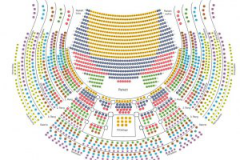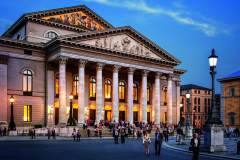The Lady of the Camellias
Mo | Tu | We | Th | Fr | Sa | Su |
Ballet
Choreography John Neumeier. Music Frédéric Chopin.
recommended for 12 years and older
Duration est. 2 hours 55 minutes
Alexandre Dumas’s epochal novel La dame aux camélias became the template for both operas (La traviata) and numerous films and ballets. John Neumeier created his version of the material in 1978 for Marcia Haydée and the Stuttgart Ballet.
Neumeier relates the harrowing tale of the courtesan Marguerite Gautier suffering with lung disease, and the young Armand who has fallen for her, in the tightest choreography and with unprecedented dramaturgical finesse, oriented on cinematic structures.
Into the equation comes the music by Frédéric Chopin, whose romantic virtuosity and existential forlornness completely stamps the seal of deepest truthfulness on the ballet. Chopin’s Piano Concerto No. 2, the romance from his Piano Concerto No. 1, the Grande Fantasie op. 13 and the Grande Polonaise brillante op. 22 are complemented by pure piano compositions, such as the Ballade in G minor op. 23, Préludes No. 2, 15, 17 and 24 from op. 28, Waltz No. 1 and Waltz No. 3, as well as the Trois Ecossaises from op. 72. The Largo from the Sonata in B minor op. 58, which appears at dramaturgically critical points, forms a musical bracket here.
Neumeier also skilfully picks up on a motif from the original novel by reflecting Marguerite and Armand’s wretched fate in the “stage fate” of two other novel characters from an earlier century – Manon Lescaut and her lover, Des Grieux. Since the world premiere of Neumeier’s work the main roles rank among the most coveted roles of the great dance actors, who find in them challenging dance technique tasks and incomparable possibilities, to immerse themselves in the most differentiated characters conceivable.
TOPIC
Act I
It had been in the Théâtre-des-Variétés. They were performing the ballet Manon Lescaut, the famous drama of a rococo courtesan torn between love of luxury and love itself. One of the most beautiful and desirable courtesans in Paris - Marguerite Gautier - was in the audience. Moved by Manon’s plight, she felt herself somehow related to her but simultaneously refused to accept Manon as her own reflection. Armand had already admired Marguerite from afar but until now had never had an opportunity of making her acquaintance. Then he was introduced to her for the first time in the theatre. Now in a state of euphoria, he followed the ballet with increased intensity and seemed to see characteristics similar to himself in Des Grieux, Manon’s faithful lover. For a moment he fears that his own future may be reflected in Des Grieux’ fate. After the performance Marguerite had decided to amuse herself - despite the presence of the boring Count N. - by inviting Armand’s friend Gaston and the somewhat vulgar courtesan Prudence to her apartments. Armand had gone along too, and Marguerite used him so far to annoy young Count N., that the latter had left in a fit of jealousy. An attack of coughing had forced Marguerite to retire. Armand had followed her to offer his help and, overcome by emotion, confessed his love for her. Though touched by his passionate declaration, she remained sceptical and kept him at a distance. The relationship between them deepened during the following period. Marguerite led her accustomed life, hurried from ball to ball, from admirer to admirer, from the old Duke to the young Count. But Armand was always waiting for her. He even followed her into the country where, because of her fragile constitution, the Duke had put an idyllic house at her disposal.
Act II
Even in the country Marguerite continued her turbulent and expensive way of life at the Duke’s expense. It happened as it had to, that a confrontation between the Duke and Armand took place. For the first time Marguerite made a choice, defending her lover in the presence of everyone and thereby rejecting a life of wealth and security. Both the Duke and his guests left indignantly. Armand and Marguerite were alone at last and could live out their love uninhibitedly. The thought that this happiness is past beyond recall is too much for Armand now, and he collapses anew. His father, deeply affected, remembers the role that he had played in the story, but not without a sense of shame. When he had heard of the life that his son was leading, he had gone to visit Marguerite in her country house, but without his son's knowledge. Demanding that she leaves Armand both for his sake and for that of his innocent young daughter, Marguerite had proven her love for Armand by giving him up, returning to Paris when he was away, and despairingly throwing herself into her old style of life. Armand is more quiet now and tells his father how he had found the house empty on his return. He had waited for Marguerite in vain until Nanina, to his amazement, had brought him a letter from her saying that she was breaking off with him and returning to her former way of life. Unbelieving, he hurried to Paris and found her after a night of searching - in the arms of another man.
Act III
Some time later they met accidentally in the Champs-Elysées. Marguerite was in the company of another beautiful courtesan, Olympia, to whom Armand immediately paid court, thus trying to strike back at Marguerite out of his own sense of hurt. Deathly ill already, Marguerite had visited Armand one last time to ask that he stop humiliating her, and their love again found expression. But a nightmare vision of Manon tortured Marguerite when they fell asleep. Waking, she decided to honour her promise and silently left her beloved. For a second time now Armand was alone. He then publicly offended her at a grand ball by handing her an envelope full of money - “payment” for her services. She collapsed. Armand has now reached the end of his narrative to which his father, much moved, has listened. They part. When Armand is alone Nanina, who had heard of his presence, returns to give him Marguerite’s diary. Armand starts to read it and learns of the rapid disintegration of her health. He seems to accompany her on her last visit to the theatre to see Manon Lescaut.
Manon, banished to America, impoverished and once again fleeing the authorities, dies of exhaustion in the arms of her faithful lover Des Grieux, who had followed her into exile. Ill and despairing, Marguerite had left the theatre, but the characters of the ballet afflicted her feverish dreams and mingled with her own memories and hopes. She wanted to see Armand just once more. Deserted by her friends of happier times, she had confided her fears and longings to the diary that Nanina now gives to Armand.
Marguerite dies, alone and in poverty.
Program and cast
Musical Direction: Victorien Vanoosten
Choreography: John Neumeier
Stage and Costume Design: Jürgen Rose
Ensemble of the Bavarian State Ballet
Bavarian State Orchestra
National Theatre Munich
The National Theatre Munich (German: Nationaltheater München) is an opera house in Max-Joseph-Platz in Munich, Germany. It is the home of the Bavarian State Opera and the Bayerisches Staatsballett(Bavarian State Ballet).
The Bavarian State Opera also performs in the Prinzregententheater, which opened in 1901 and, like the Bayreuth Festspielhaus, is built to Richard Wagner's specifications, and in the Cuvilliés Theatre at the Residenz, constructed in 1751–1753 and described by Thierry Beauvert as "a Rococo gem".
The Nationaltheater is very easy to get to both by car and by MVV public transportation.
By MVV public transportation
S-Bahn: S 1 - 8 Marienplatz
U-Bahn: U 3, 6 Marienplatz, U 3 - 6 Odeonsplatz
Bus: 52, 131 Marienplatz, 100 Odeonsplatz
Straßenbahn: 19 Nationaltheater
On the day of the performance, holders of regular tickets are entitled to use public transport provided by the Münchner Verkehrsverbund (MVV). This service starts at 3 pm respectively three hours before the performance commences and ends with the closing hour of the MVV.
By Car
Take the Altstadt-Ring to Maximilianstraße.
Parking garage Max-Joseph-Platz: open Monday to Sunday from 6:00 A.M. to 2:00 A.M.
You can take advantage of the special theatre parking fee of Euro 10,- from 6:00 P.M. to 8:00 A.M. by presenting your admission tickets.

 EN
EN DE
DE IT
IT FR
FR ES
ES RU
RU JP
JP RO
RO
 Seating plan
Seating plan 